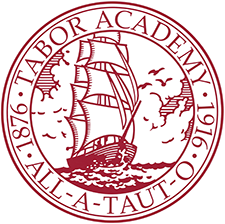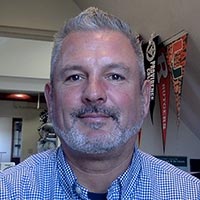232 Front St
Marion, MA 02738
USA

The May meeting of the Marine and Oceanographic Technology Network (MOTN) will be held at Tabor Academy, Lillard Hall, 245 Front Street in Marion, MA, on May 6 at 5:30 PM. Tabor Academy is a private boarding and day high school located on the shores of Sippican Harbor. The school enjoys a strong Marine and Nautical Science program with several important emerging research partnerships. As the host, Tabor faculty and students are eager to share some of their work with MOTN members and guests. The meeting is free and open to the public.
Please RSVP to info@motn.org
Presenters:

Jay Cassista, Director of Marine Sciences at Tabor Academy, will give a quick introduction and overview of the marine science courses, initiatives, and research endeavors of the School by the Sea.
 Dr. John Crosby, Jaeger Chair in Marine Sciences at Tabor Academy, will share a summary of Tabor’s ongoing research into the mortality and recovery of important reef-building corals in the Caribbean. Included will be an overview of their most recent field work in the Bahamas to build a coral nursery, and what steps are being taken to improve disease resistance in newly planted reefs.
Dr. John Crosby, Jaeger Chair in Marine Sciences at Tabor Academy, will share a summary of Tabor’s ongoing research into the mortality and recovery of important reef-building corals in the Caribbean. Included will be an overview of their most recent field work in the Bahamas to build a coral nursery, and what steps are being taken to improve disease resistance in newly planted reefs.

Rich Arena
Rich Arena, graduate student at UMASS Dartmouth’s School for Marine Science & Technology (SMAST), will discuss his research with OCEANOL, Ocean Observation Laboratory, and the collaboration with Sophie Banas and her Tabor Academy Senior Project.
The researchers in the Ocean Observation Laboratory (OCEANOL) seek to better understand coastal ocean processes by integrating modern ocean observations with numerical ocean modeling. Measurements from moorings, coastal high-frequency (HF) radar sites, ocean gliders, shipboard surveys, operational satellite imagery and meteorology are integrated into our studies of various coastal ocean and estuarine domains including the Gulf of Maine, Georges Bank, the New England Shelf, and the Mid-Atlantic Bight (MAB).
After serving six years in the United States Army Richard headed to Texas A&M University – Corpus Christi where he received a Bachelors degree in Environmental Science and a Masters degree in Applied and Computational Mathematics. Currently Richard is a Research Associate in the Ocean Observing Laboratory, OCEANOL, at the University of Massachusetts – Dartmouth where he researches ocean currents through the use of High Frequency (HF) radars and uses underwater autonomous vehicles such as a Slocum glider to measure water properties in coastal waters.
Finally, two of Tabor Academy’s seniors will share ways they have supported the school’s Marine Science initiatives. Tabor senior Anna Douglas will describe the work she is doing to support Dr. Crosby and the school’s REEF initiatives in nursery and coral mapping with data, a gene expression study that will isolate RNA to transcribe into DNA from preserved tissue, and growing staghorn coral in the school’s wet lab to research their resistance to different coral diseases. Kellie Navarro, also a senior at Tabor, will share the successful aquaponics system she built in her engineering class along with lesson plans she developed to extend her passion for sustainability and environmental conservation to middle school students in New Bedford through the study of aquaculture, hydroponics, and aquaponics.
Come learn about these engaging projects and how Tabor Academy is participating with local researchers, as well as directing their own initiatives right here in their amazing facilities on Buzzards Bay and beyond.

Sophie Banas – Tabor Senior
Sophie Banas – Tabor Senior
“I plan to travel to OCEAN Observation Laboratory in New Bedford and work with the lab assistant and PhD. student, of Dr. Wendall Brown, named Rich Arena. He is an expert field guide and computer data analyst and he has proposed the goals of analyzing 17000 profiles from past missions or hourly ocean surface currents measuring by using the array of High Frequency radar sites that this facility has in Cape Cod, Nantucket, Martha’s Vineyard, and Block Island. He has even proposed that I go visit some of the sites to conduct the measurements. There is even the possibility of helping to prep their glider, BLUE, in May before its upcoming field season. I will accomplish these goals by going to OCEANOL however many times they need me to work on the data each week and dedicating all free time I have and need to fully accomplish the things Mr. Arena has for me to do.”
Sophie will be analyzing the data taken from the ocean gliders and looking for correlations between the saw-tooth diving pattern of the glider and the similar swimming pattern of the loggerhead turtle. Sophie will spend time during the school day at Tabor crunching data as well as meeting at the School for Marine Science and Technology with Richard Arena each week.

Anna Douglas – Tabor Senior
Anna Douglas – Tabor Senior
“In the first part, I will be working with Dr. Crosby on doing research that stems from REEF. There are three main things I will be doing: nursery and coral mapping with data, a gene expression study where I will isolate RNA to transcribe into DNA from preserved tissue, and working in the wet lab to grow staghorn coral and research their resistance to different coral diseases.”
“The second part involves doing microscope photography. My plan is to use a light microscope (and possibly an electron microscope at the MBL) and different tissue samples including flowers, stained animal tissue, coral, and other objects. In the end, my hope is to work with Ms. Smith, and Mr. Whitworth to print out 6-8 large prints of my photographs that I will take over the trimester.”

Kellie Navarro – Tabor Senior
Kellie Navarro – Tabor Senior
“My senior project involves combining marine science and engineering as I will be building an aquaponics system in an effort to further my passion for sustainability and environmental conservation. I will also be sharing my love for marine science by exposing middle school students to aquaculture, hydroponics, and aquaponics through a day-long community service event led by Tabor students. These 7th-grade students will then create their own systems in their science classes using my aquaponics system and those of other Tabor students as inspiration.”
We look forward to learning more how this innovative high school is engaging with local researchers as well as directing their own initiatives right here in our back yard.
